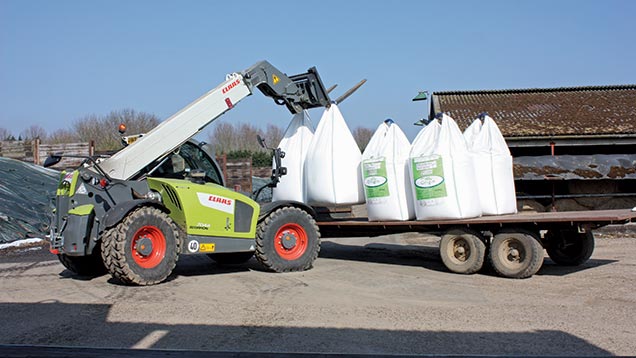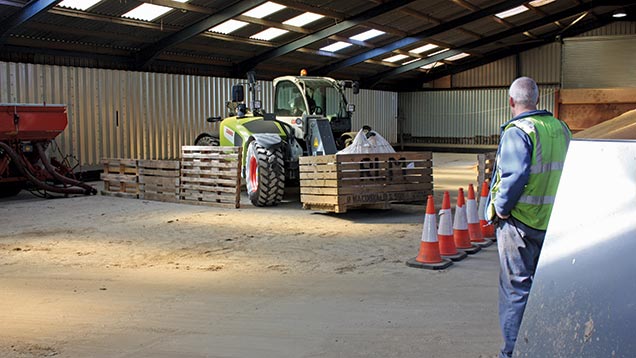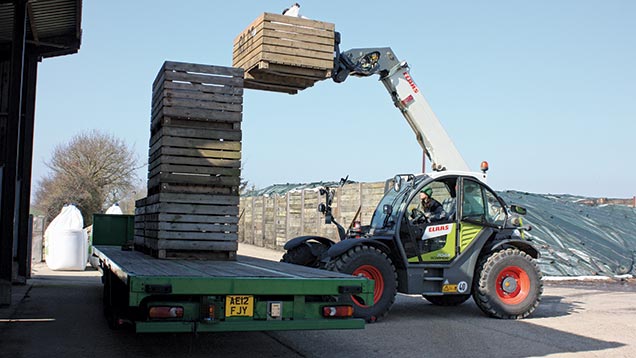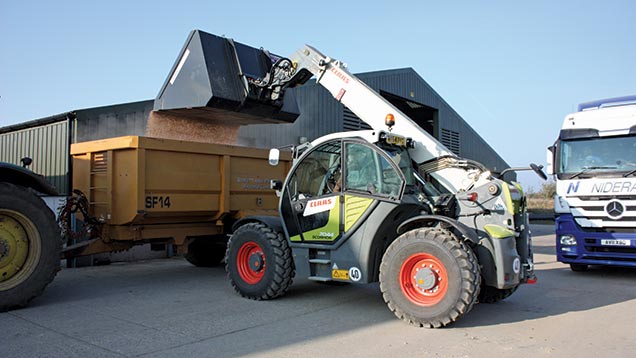Top tips for passing your telehandler test
Tests – whether they involve youngsters becoming qualified to drive a trailer or mature workers being assessed on a telehandler – may not be fun but they are an unavoidable part of modern farming.
You may be able to dodge them for a while, but in this increasingly safety-conscious and litigious world it is better to get them under your belt. In any case, it is likely that your insurer will soon be asking you whether you have taken the test.
See also: Taking your tractor test – all you need to know
It is believed only a minority of people using handlers on farms have done the telehandler test. However, that figure is likely to rise fairly quickly in the coming years.
Most common reasons for failing
- Doing too many things at the same time.
- Moving the boom up and down while on the move.
- Not looking behind you when you reverse.
- Being in a rush.
- Not putting the handbrake on the moment you have come to a halt when, say, you have driven the bucket into a pile of wheat.
- Experienced drivers being too cocky. The way you behave during the test is likely to be very different from how you would work on your own farm.
To see what’s involved Farmers Weekly followed the three candidates – Mike, Jane and John – as they took their ITSSAR rough terrain telescopic FLT test on a farm in Suffolk with their instructor Julian Poulson.
Getting started
Birds Farm near Lavenham, a tidy and spacious Strutt & Parker farm, was the venue. An almost-new Claas telehandler was on hand, with lots of concrete for manoeuvring and some big sheds for the slalom test.
Jane is a member of staff on the farm and her role is to shovel vast tonnages of maize into the farm’s new AD plant, so she had already used the Claas around the farm.
Mike uses a Sanderson 622 on the nearby family farm and wanted to be street-legal.
John, meanwhile, uses a Merlo P32.6 on a farm across the border in Essex and wanted to get the test under his belt.
The course kicks off in the morning with a half-day of advice and explanation about what is expected of them.
Then the candidates spend the afternoon and the following morning practising their skills.
Finally, in the afternoon, they do the theory questions and then the practical tests straight afterwards.
The theory test involves 25 questions, 20 of them multiple choice and a further five open ones. You have to get 20 marks out of 25.
The practical test takes 40 minutes. If you exceed that figure, you get penalised at the rate of 1 point for every extra minute.
Tip
Examiners don’t like bad habits like overuse of the boom (instead of driving forward) and lots of running around with the boom fully out.
Getting practical
- Manoeuvring skills. Two lines of pallets in a big grain barn formed a chicane. Looks easy but you had to have fairly good manoeuvring skills not to crunch one of them. And remember that none of the candidates were very familiar with the Claas.
- Potato box stacking. For this test, the candidates had first to take off the topmost 1t potato box from a stack of four on top of a trailer, put it on the ground and then put it back again. It is an easy enough operation if you are used to moving potato boxes, but it is a specialist crop now compared with 20 years ago and many candidates won’t have had experience of it. Our hopefuls managed the task fine but admitted that not being able to see the forks made it tricky and getting them level isn’t always easy either.
- Shifting fertiliser bags. Moving two 1t fertiliser bags at a time from one trailer to another. This was an easier task and the three candidates did well, however using an unfamiliar type of machine can make life trickier.
- Moving grain. This task involved using a 2t bucket to shift wheat from the store to a trailer outside. Not too taxing, maybe, but you have to show that you are doing it by the HSE book, such as put on the handbrake before you tip into the trailer.
Did they all pass? Yes they did. There were a few faults (including not looking behind when reversing) but overall they did pretty well.
Tip
If you’re used to a fairly old machine, you’ll need a few minutes to get used to modern things like electric handbrakes, multifunctional controls and ultra-sensitive hydraulics.
Your questions answered
Do I have to take take the test?
Yes. Under the oddly-named Puwer (Provision and Use of Work Equipment Regulations 1988) regs, you should.
However tens of thousands of farmers and their staff in the UK haven’t, and some probably haven’t heard of it at all.
While you won’t be prosecuted for that as such, if there’s an accident and the HSE is involved, there’s always a likelihood that they will throw the book at you, so it’s probably best to view the training as a form of insurance.
Telehandler accidents (some of them fatal) do happen with some regularity.
How long does it take?
It depends. If you are already conversant with telehandlers, you can get by with a two-dayer. However anyone new to handlers is required to attend a three-day course. This would include an 18-year-old harvest student, for example.
How many people are there likely to be in the group?
For safety reasons, three people is the maximum.
How many people fail the test?
Very few – Julian Poulson reckons that he has only had to fail five or six people in 10 years of being an instructor. However quite a few people come close to failing, so don’t get too blasé.
What happens if I fail the test? Am I not allowed to use a handler anymore?
You should probably stay off the handler until you get some further training.
Could you pass the test without ever having driven a telehandler before?
Yes, provided that you had experience of farm machinery generally.
What does the test cost?
The two-day course for experienced operators costs £160-£180 + VAT, while a one-day refresher course is about £140.
Will I need to do the course again in the future?
Anyone using a telehandler should get retested every five years. It shouldn’t involve more than one day of tuition, though.
How do I find out where the nearest course is?
Three organisations provide telehandler training. Lantra and ITSSAR cover most farming-based courses, RTITB is more warehouse-sector based, while CPCS/CITB is more aimed at the truck side.
They accredit a number of individual training groups. The one our three attended was organised by Eastern Training Alliance in Suffolk, but they are run all over the UK.





